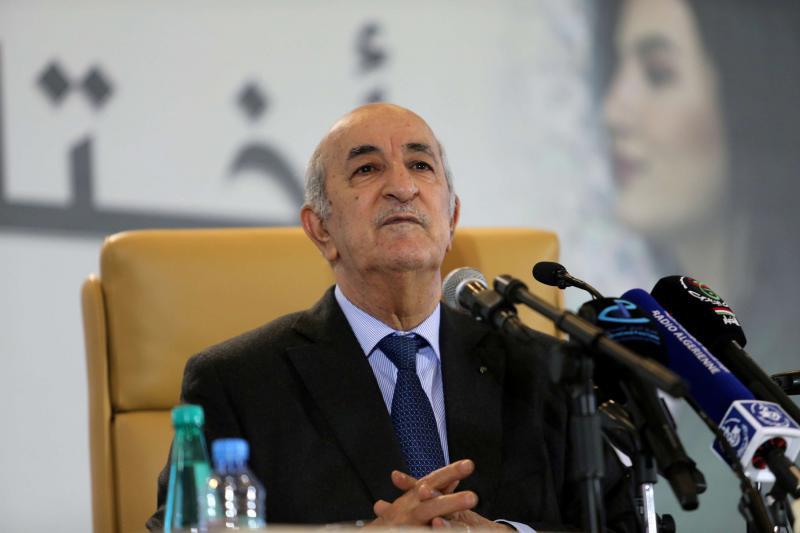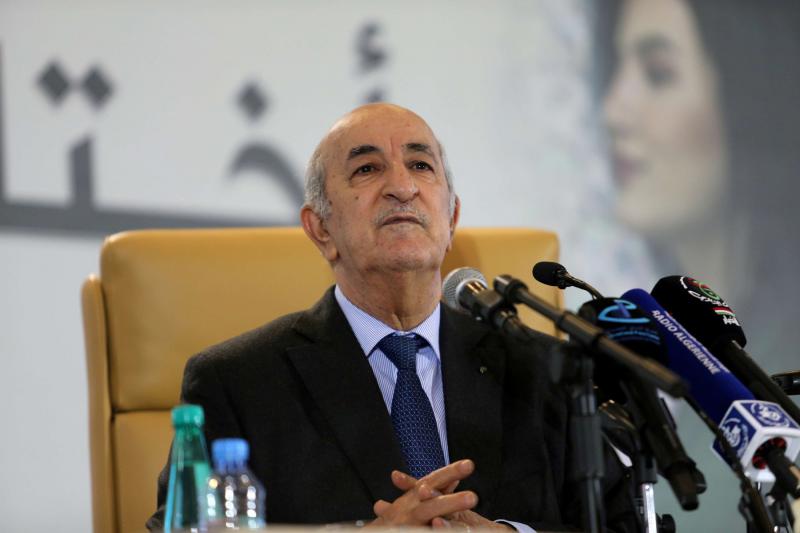Lack of popular legitimacy complicates task of Algerian government
It has become clear that the primary concern of the Algerian government, appointed recently by President Abdelmadjid Tebboune, is to search for legitimacy at all costs.
However, the efforts of Prime Minister Abdelaziz Djerad to find a solution to the political crisis in Algeria and the initiatives he has announced are going to collide with the rejection of his government by a large portion of the Algerian people.
There are other factors that complicate this lack of a popular legitimacy for the government. One of them is the inability of Tebboune to find his own style of governance away from the traditional dominance of the security and military authorities over real political decision-making.
This will prevent Tebboune from engaging in any dialogue initiative with the popular movement without the blessing of the military institution. Note that the demands of the popular movement of finishing off once and for all with the personalities and figures of the ruling regime without exception, initiating a radical change in the constitution and then having parliamentary elections to come up with a government elected by the people, have no chance of being accepted in their entirety by the ruling regime. It is desperately seeking to renew itself.
The reality is that the government does not possess the necessary popular legitimacy and is not backed by national consensus to achieve the needed political breakthroughs to break up the traditions of the Algerian regime, which constantly resorts to imposing its own ministers while deluding the Algerian people with the false promise of change.
In this frustrating climate, a large part of the Algerian population has shown full awareness of the reality in the country, especially the ruling regime’s efforts to maintain control of power in Algeria. This is why political observers consider the proposed new government to be a puppet of the presidential palace and the military barracks.
The slogan of “a government of change” raised by Djerad before and after the announcement of the formation of the cabinet, is a ploy to contain the popular movement while maintaining the cultural, intellectual and material foundations of the system of personal rule that had driven Algeria to the current cultural, economic and educational deadlock.
National public opinion no longer believes the Algerian authorities, who have, since independence from France, excelled at inventing a culture of systematically proceeding to psychological discharging citizens and absorbing their anger whenever this or that crisis erupted.
Experience revealed that this system of discharging people’s frustration played a pivotal role in the accumulation of Algeria’s chronic problems, which have repeatedly led to disastrous results for which the Algerian people paid a heavy price.
There is no doubt that the popular movement gained experience after ten months of dealing with the authorities and realises that the ruling regime is bankrupt and has no project for a just democratic state and does not possess the vision and plans for defusing the Algerian crisis.
In this dark climate, Djerad addressed the Algerian people and found nothing better than to arbitrarily reduce the crisis to a matter of “regaining confidence in our society and economic and social challenges.”
This official reduction of the Algerian crisis veils its true core, which is the regime’s disregard for building an open and free society that would serve as the reference framework for the formation of a modern state and its human and symbolic capital.
The government does not seem capable of implementing national development projects or a new governance mentality based on separation of the civilian, political and military powers. Thus, the slogan of change has become mere utopian fantasies if we consider the shallow experience of most of the appointed ministers, as well as the weakness of their improvised agendas.
The new cabinet has no realistic agenda because none of the specialists and specialised institutions likely to propose scientifically sound solutions to Algeria’s multiple ills have been consulted.
What the newly appointed cabinet will be doing during the short span until legislative elections is to reproduce the typical patching policies because of the lack of financial and psychological conditions to implement programmes, as well as the absence of popular legitimacy, which represents the required symbolic and vital force for any political action.
Another problem with the new ministers is their lack of practical experience and intellectual and political maturity, which does not qualify them to manage the affairs of a modern state. As for the former ministers who have been recycled in the Djerad government, one cannot objectively expect them to produce any change because they are an organic part of the suffocating crisis created by the ruling regime, which never achieved the slightest change in the country’s development.
Azraj Omar is an Algerian poet and writer.
This article was originally published in The Arab Weekly.







